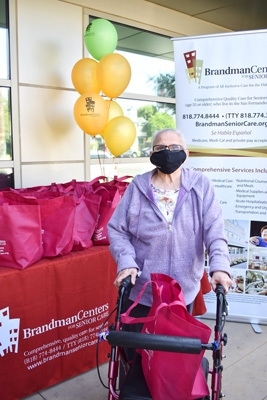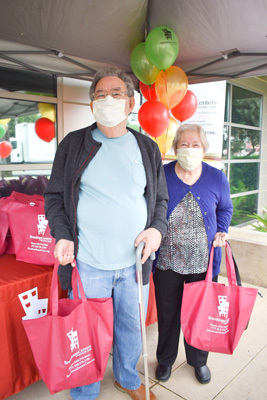Taking Care of Seniors - One Car at a Time
Taking Care of Seniors - One Car at a Time
It's an annual rite of passage: Every fall, Angelenos of all ages head to their doctors' offices or local pharmacies to get inoculated for the seasonal flu. This year, against the backdrop of a pandemic that has made health and safety a top priority for all, that pilgrimage is more critical than ever as people across the country seek to protect themselves from flu and keep their immune systems strong in the face of COVID-19.
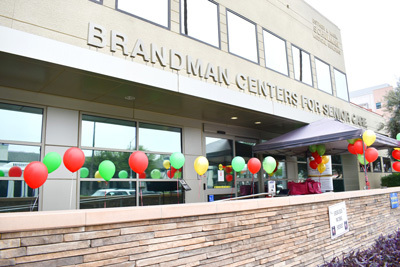
Seniors are particularly susceptible to the flu, and the Jewish Home, a leader in proactive preventive care, is making it as easy as possible for them to get immunized. Case in point: the recent drive-up flu shot event at Brandman Centers for Senior Care (BCSC). Held over the course of two days, the event enabled seniors who are participants in PACE to visit the Center and safely receive their vaccinations. Each left with a goodie bag filled with a cloth mask, hand sanitizer, a toothbrush, toilet paper, and more—essential items for maintaining good personal hygiene as we enter flu season.
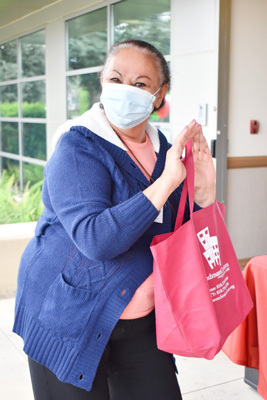
"Keeping our seniors healthy is central to what we do at BCSC—whether that's safeguarding their physical health or promoting their emotional well-being," says BCSC Executive Director Susie Fishenfeld. "When it came to providing flu shots, we had to get creative this year because of the pandemic and the stringent requirements for physical distancing. This drive-up event was terrific because it enabled us to reach seniors in need and to do it in a way that kept them safe and protected."
Some seniors turned out for the event in their own cars; others took advantage of BCSC's shuttle bus service, which brought them directly to and from the organization's Reseda facility safely. When they arrived, they could park curbside, where they were greeted by festive signage, balloons, and smiling staff welcoming them to BCSC.
Also on hand was Casey Ott, MD, BCSC's medical director. "It has long been recognized that seniors are at elevated risk of developing complications from the flu because of age-related changes in their immune defense. What's more, older adults account for the most deaths and hospitalizations from both the flu and COVID-19," he notes. "We're enormously pleased so many seniors attended our drive-up event, which we hope will help them stay healthy over the coming months and beyond."
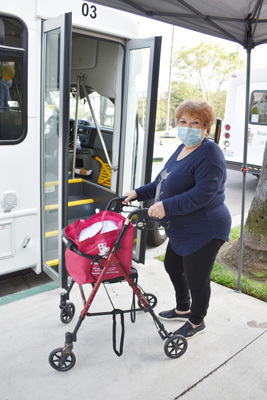
For some Angelenos, the coronavirus may have presented an additional barrier to getting a flu shot, says Noah Marco, MD, the Jewish Home's chief medical officer. "People might think they're less likely to get influenza because they're social distancing and wearing masks, but that's really the wrong way to look at it," he says. "We're all part of a community, and we have a responsibility to that community. Even if you're not worried about getting sick yourself, the possibility of contracting the flu virus and then giving it to someone else—with potentially lethal consequences—is no different than it was in prior flu seasons."
"Our goal is to equip seniors with the immunizations and a few vital supplies to help meet their needs as they grapple with the challenges of this unusual flu season," Susie says. "If we can make things even a little bit easier during these difficult times, it means we're doing our jobs and making a difference in healthcare!"
